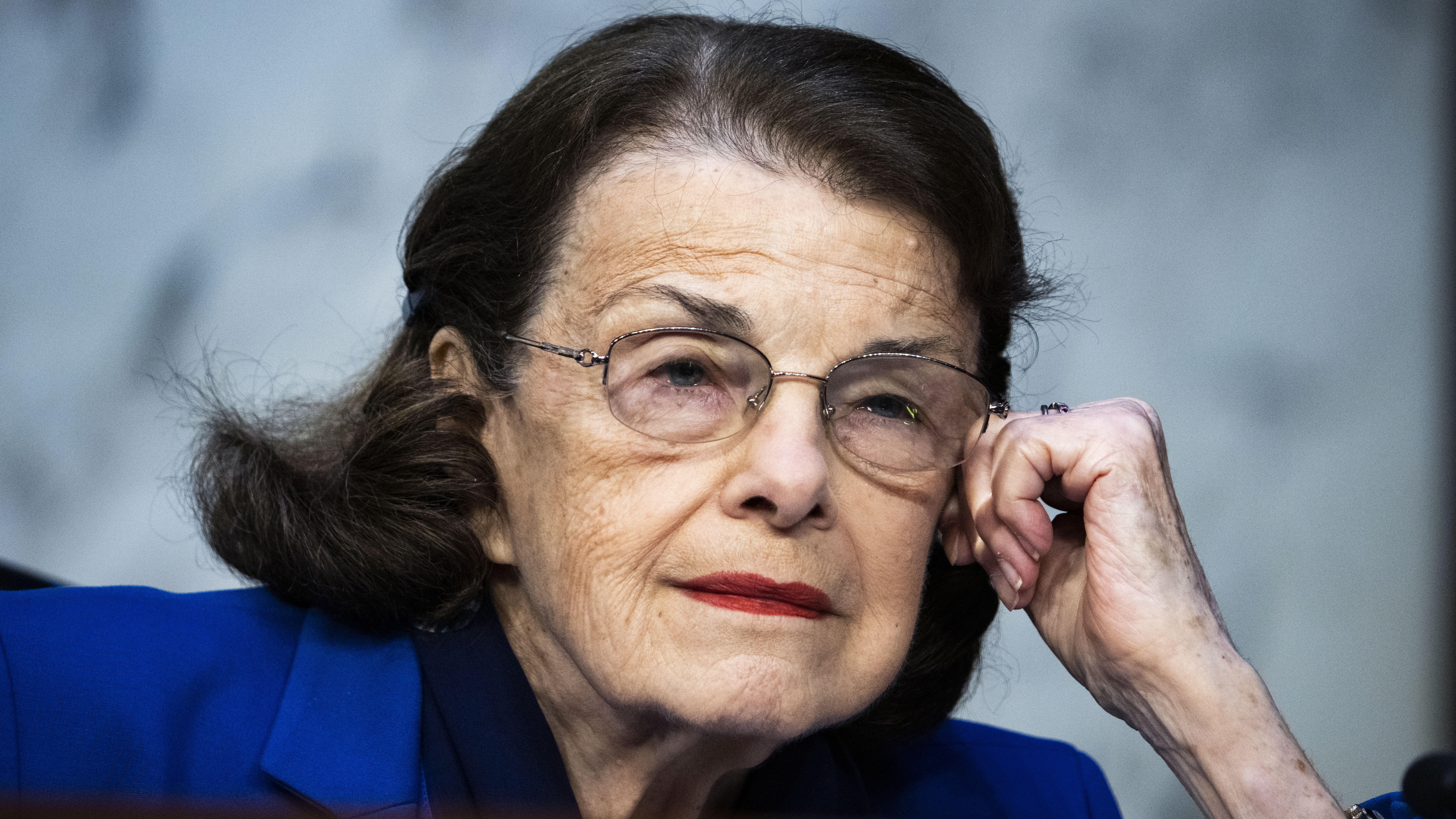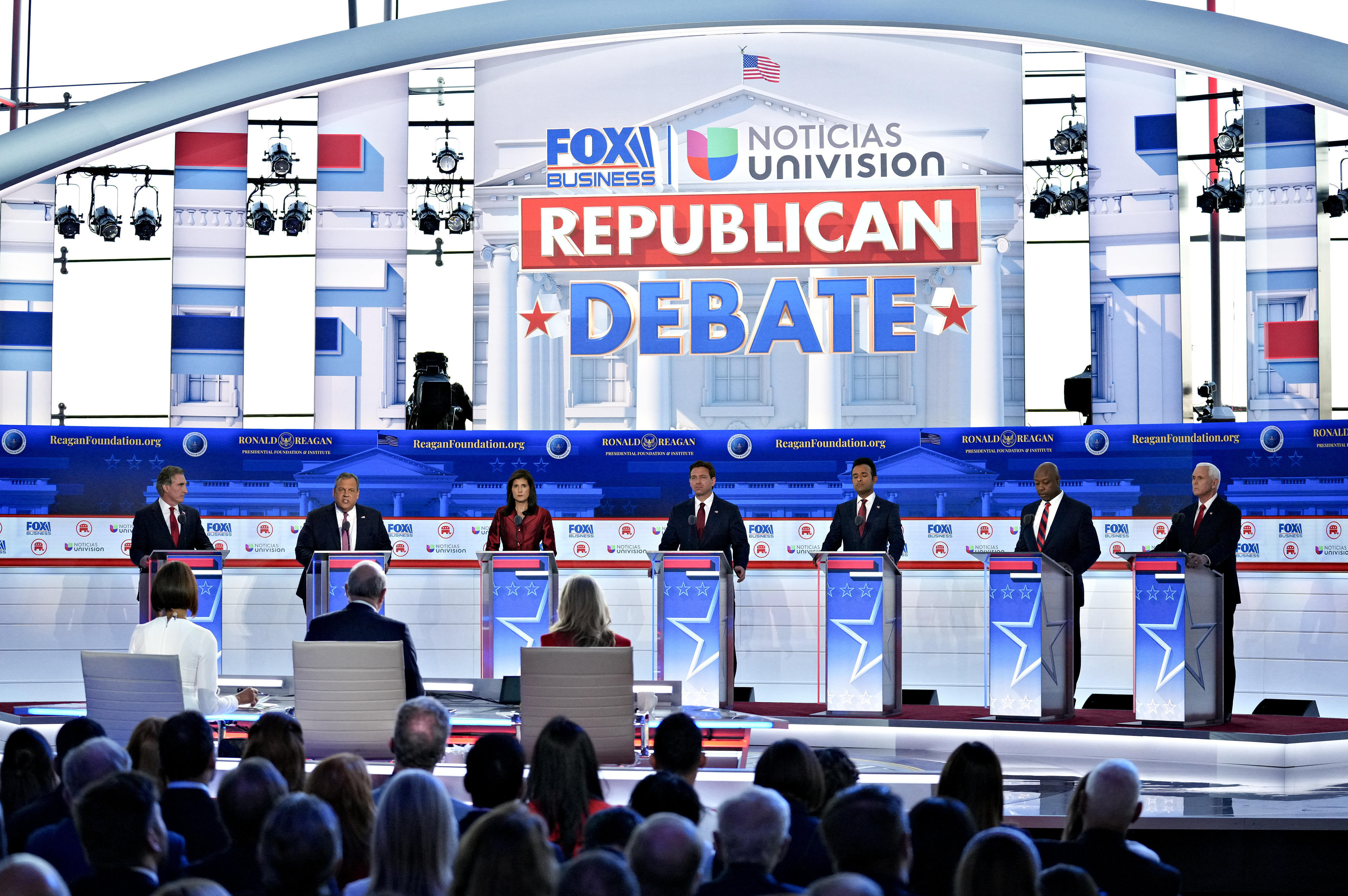Political leaders, including former President Trump, will gather in Anaheim Friday for the start of the California Republican Party Fall Convention with a handful of key platform decisions to be made ahead of next year's primary elections.
Trump, one of four presidential hopefuls expected to attend the weekend event, is scheduled to speak Friday at the Anaheim Convention Center.
South Carolina Sen. Tim Scott, who is also seeking the Republican presidential nomination, will speak at a "fireside chat" with California Republican Party Chairwoman Jessica Millan Patterson. Florida Gov. Ron DeSantis is scheduled to speak at a dinner banquet at 7:30 p.m. Businessman Vivek Ramaswamy is set to speak at a luncheon banquet at noon Saturday.
Get top local stories in Southern California delivered to you every morning. >Sign up for NBC LA's News Headlines newsletter.
The event follows this week's GOP presidential candidates debate, which Trump did not attend at the Reagan Library in Simi Valley. Instead, the party front-runner was in Michigan, where he sought to court blue-collar workers during the autoworkers strike.
At stake this weekend is what issues will be central to the party platform as campaigns intensify in the months leading up to the March 5 state primary and the 2024 presidential election in November. California is the biggest prize on the primary calendar with 169 delegates. Any candidate who collects more than 50% of the votes in the primary would win all the delegates up for grabs.
The platform provides the state party's guiding principles. Crafting the platform begins every four years in the spring after non-presidential election cycle. A platform committee drafts language in preparation for the fall convention, where it will present the platform to party delegates.
Trump is likely to get a hero’s reception from party loyalists in a state that he lost to Joe Biden in a landslide in 2020 while also receiving over 6 million votes — more than any Republican presidential candidate before him. Recent state polling suggests that Trump is the strong front-runner there in the contest for the Republican nomination, as he is nationally.
A Public Policy Institute of California voter survey released Wednesday, but conducted in late August and early September, found Trump with support from nearly half of the likely Republican primary voters. DeSantis was far back, at 14%, with the rest of the field lagging in single digits.
California — where Democrats hold every statewide office, dominate the Legislature and congressional delegation and outnumber registered Republicans by about 2-to-1 — is not expected to be competitive in the November 2024 presidential election.
The last Republican to win a presidential contest in California was George H.W. Bush in 1988. You’d have to go back to 2000 to find a Republican nominee who made a significant effort to win California, when George W. Bush invested millions in the state then lost to Democrat Al Gore by 12 points.
For Republican nominees, California mainly serves as a font of campaign cash.
A state GOP rule change in July opened the possibility that Trump could sweep the state’s trove of delegates when California is among more than a dozen states participating in the Super Tuesday contests.
Under the change, a Republican presidential candidate who pulls in more than 50% of the primary vote would be awarded all 169 delegates. If no candidate hits that threshold, delegates will be awarded proportionally. Such a winner-take-all rule didn’t exist in recent presidential elections in the state.
Similar rule changes seen as benefiting the Trump campaign are playing out elsewhere, including in Michigan and Nevada.
The kickoff Iowa caucuses that mark the start of the nominating season are less than four months away.



